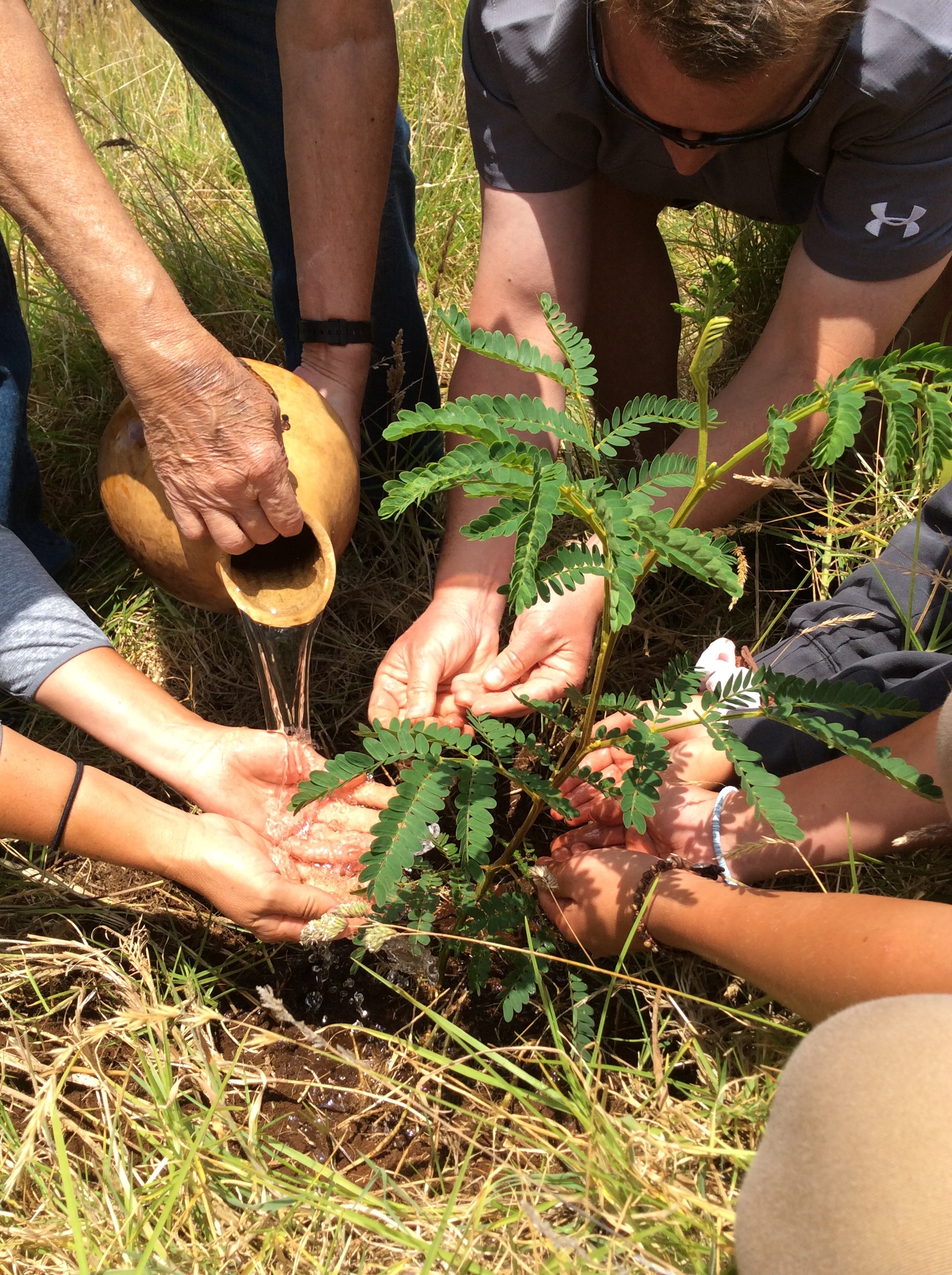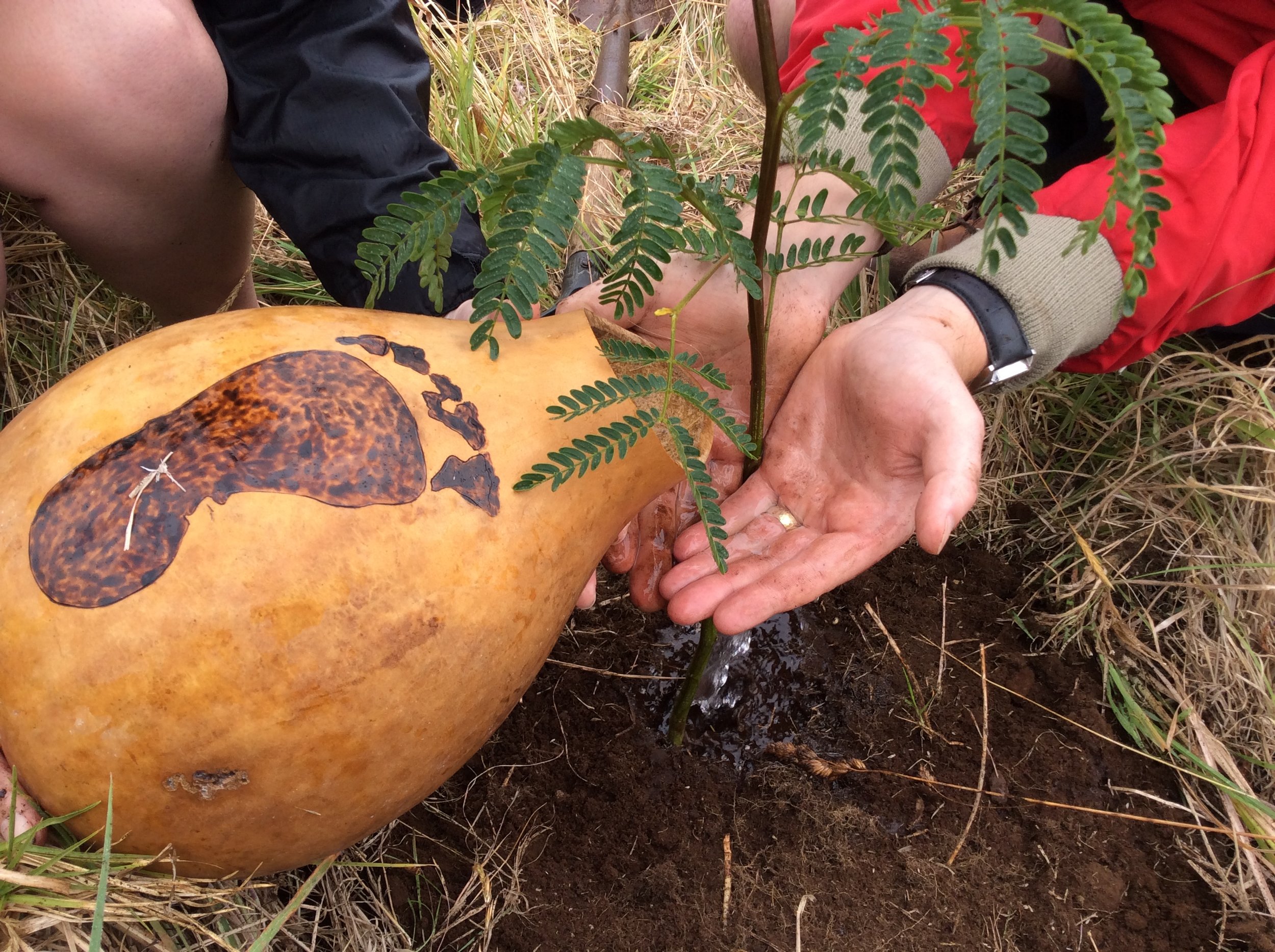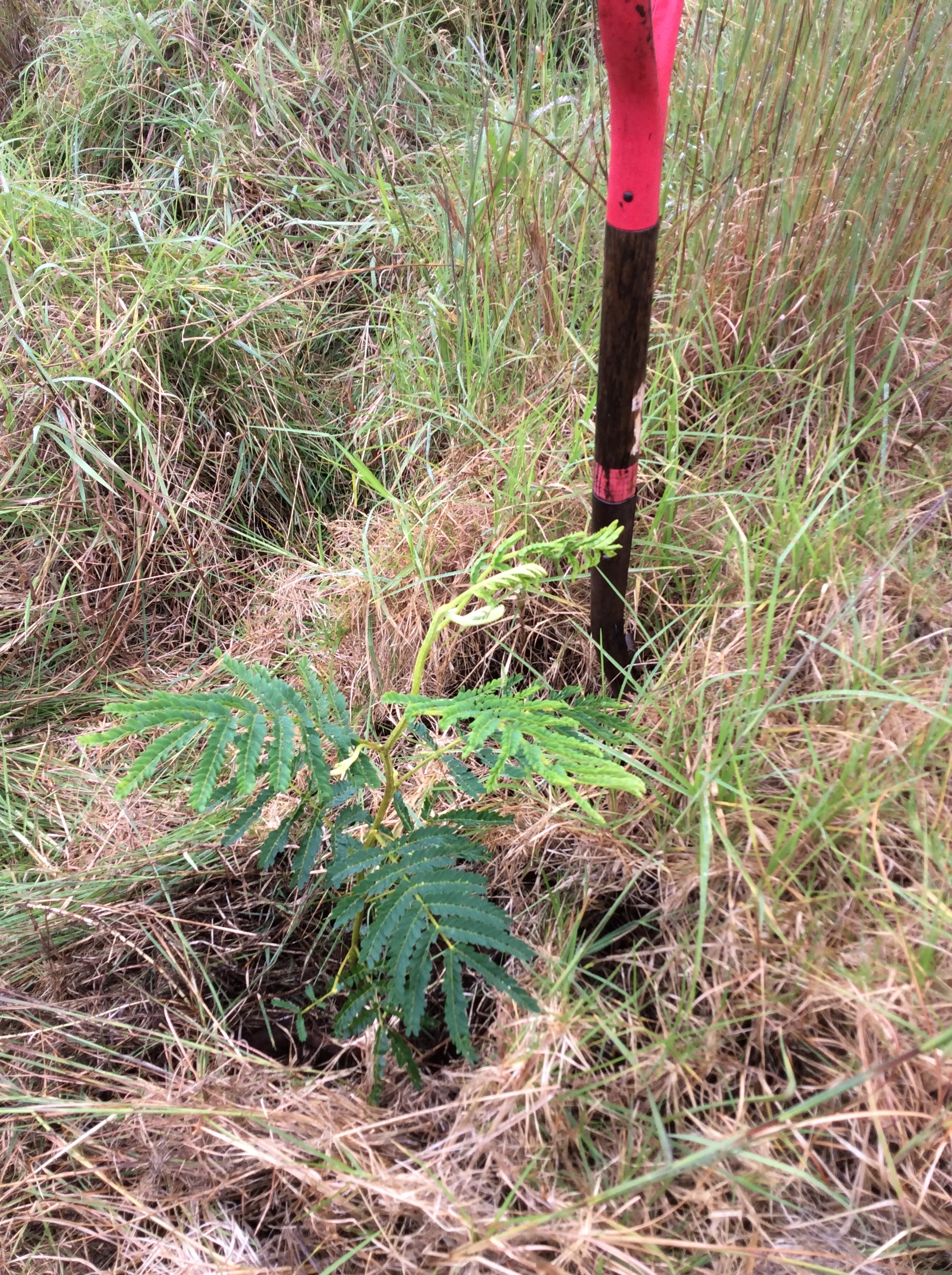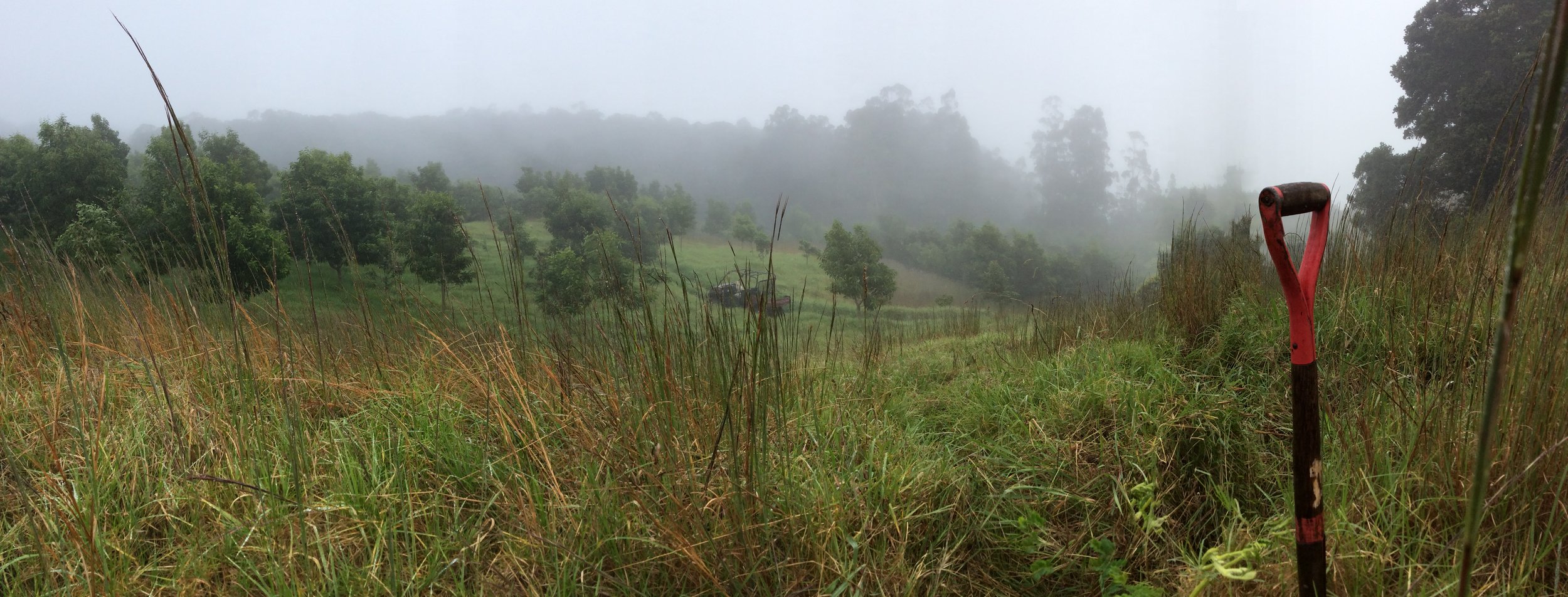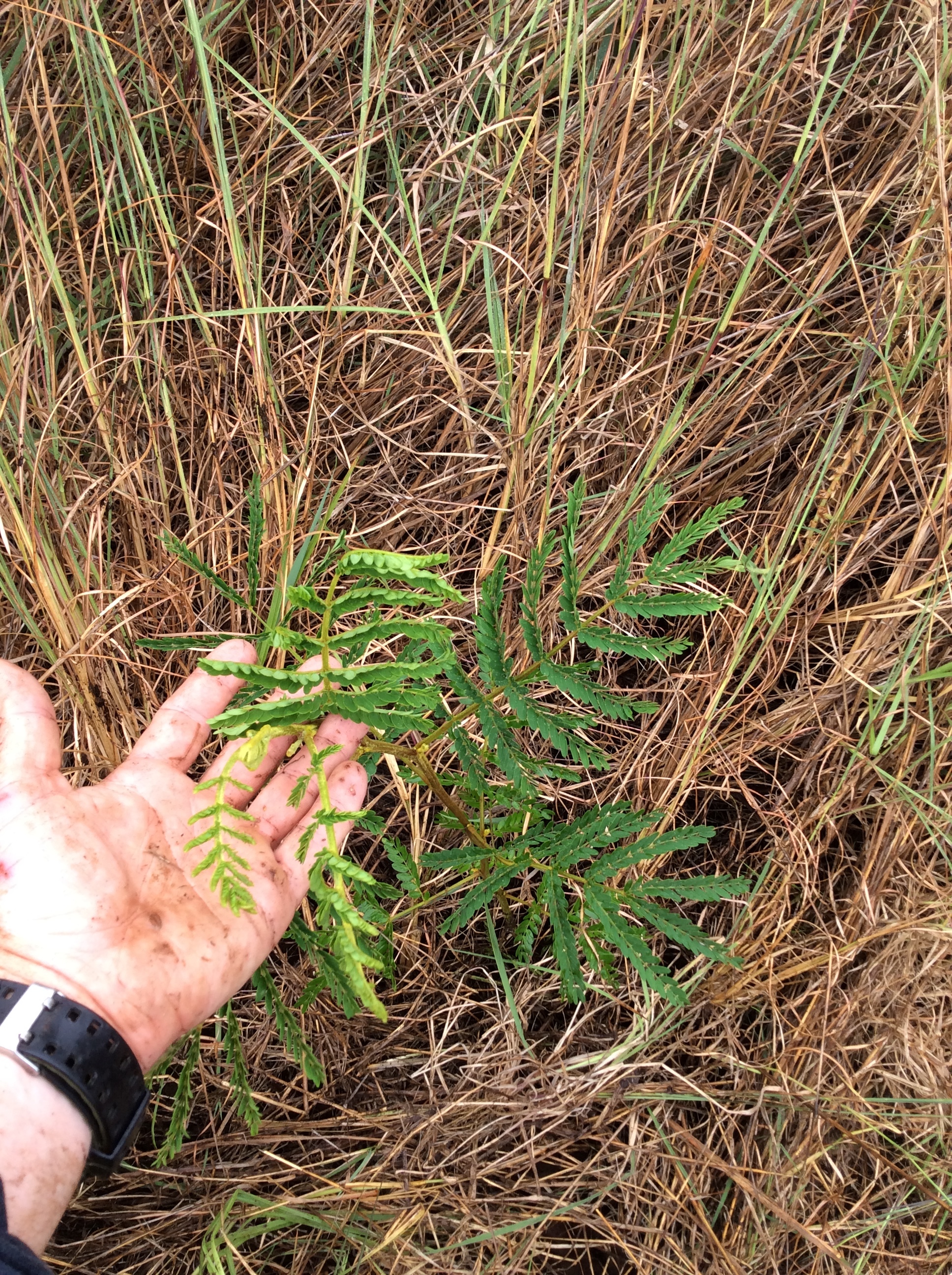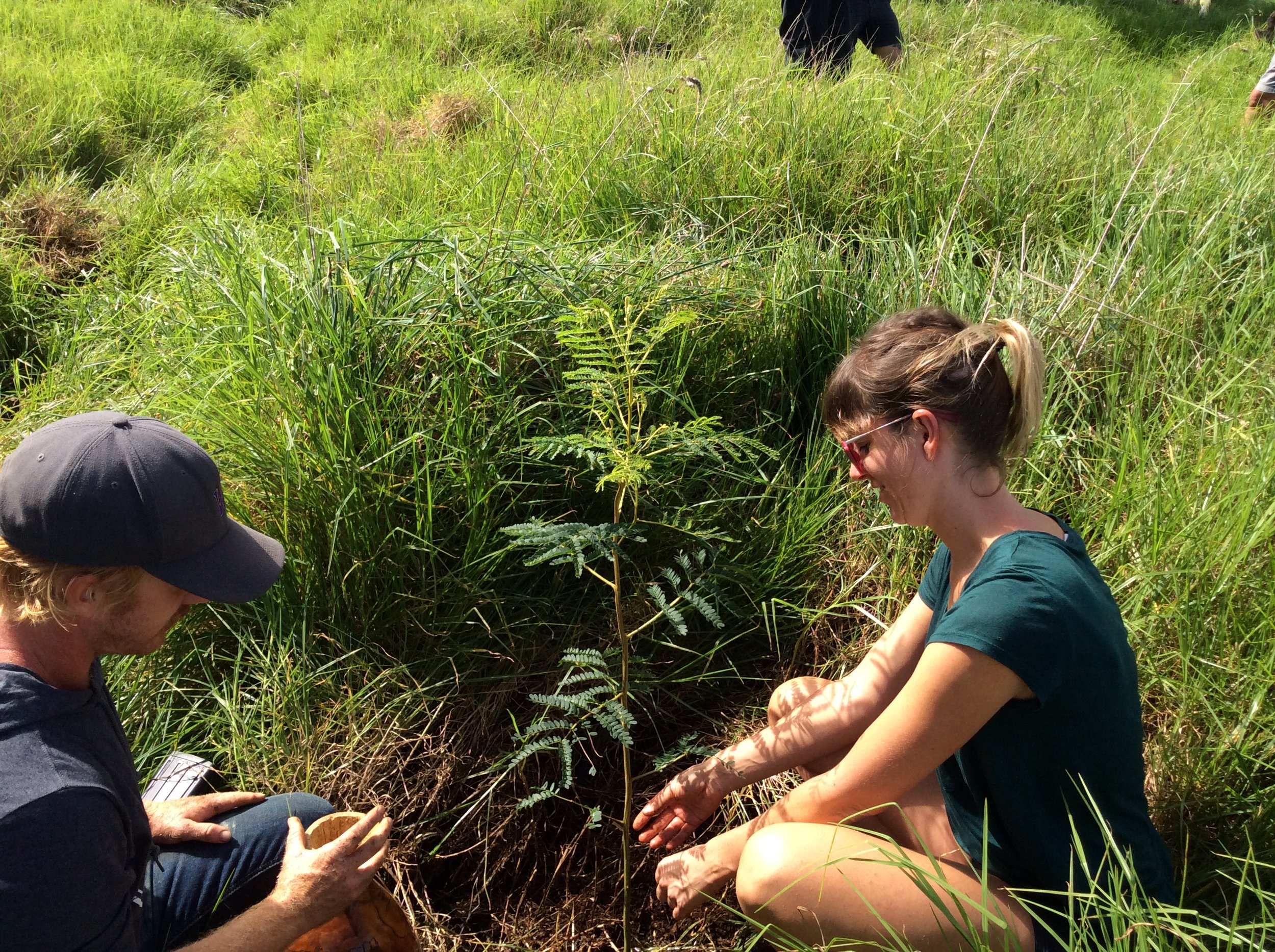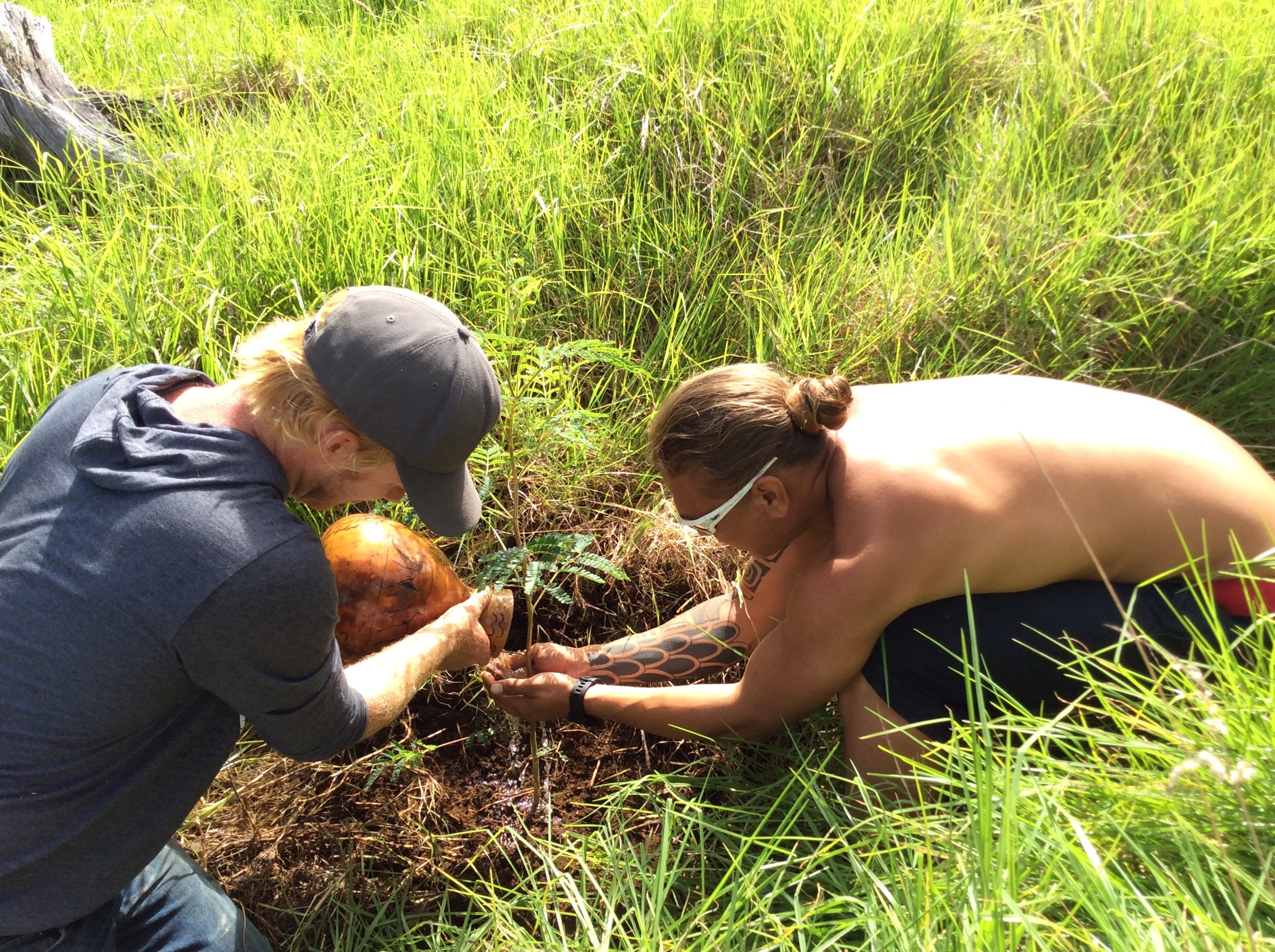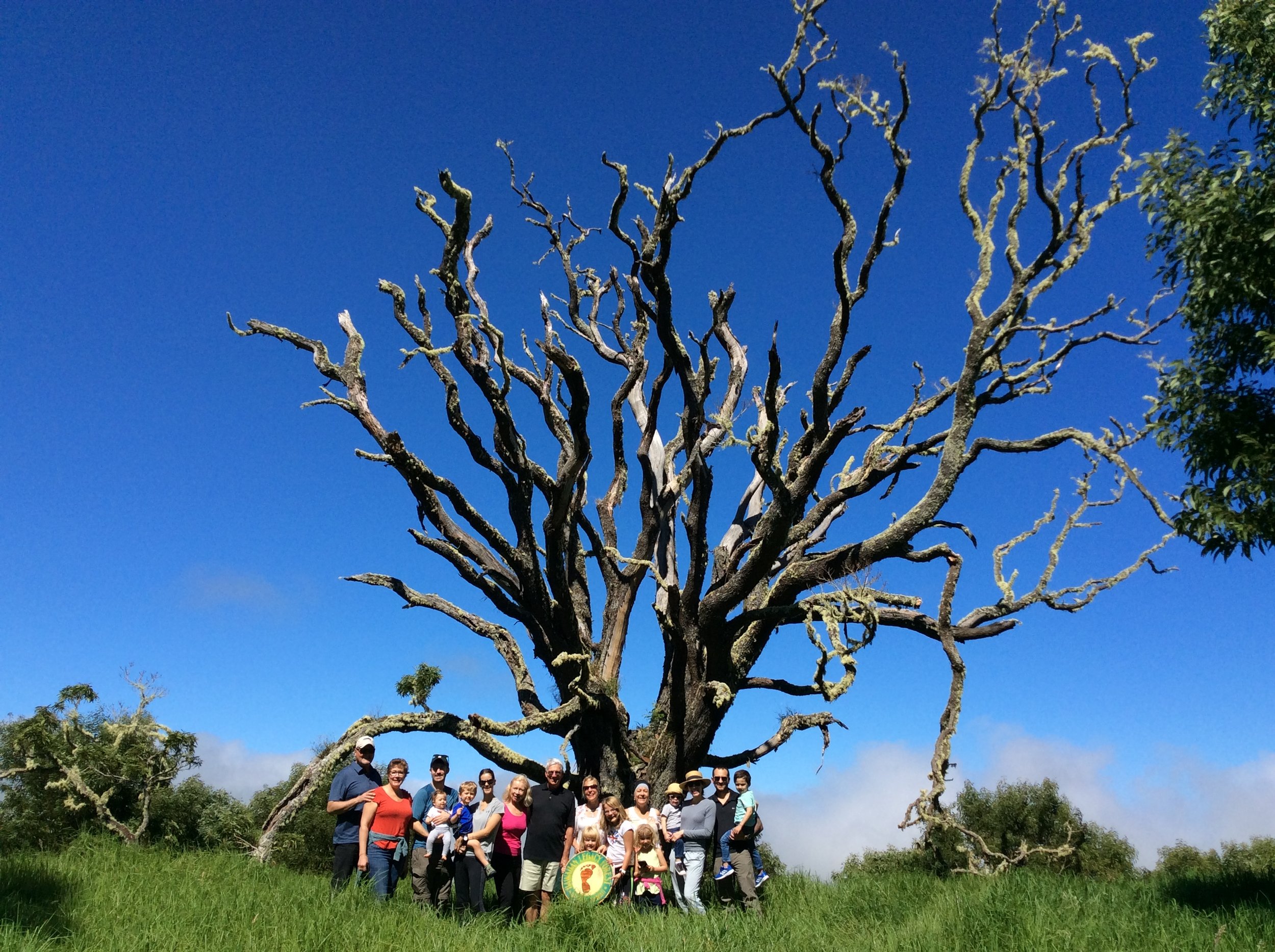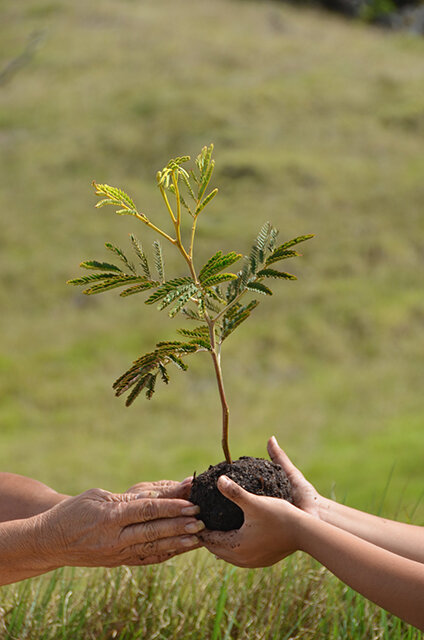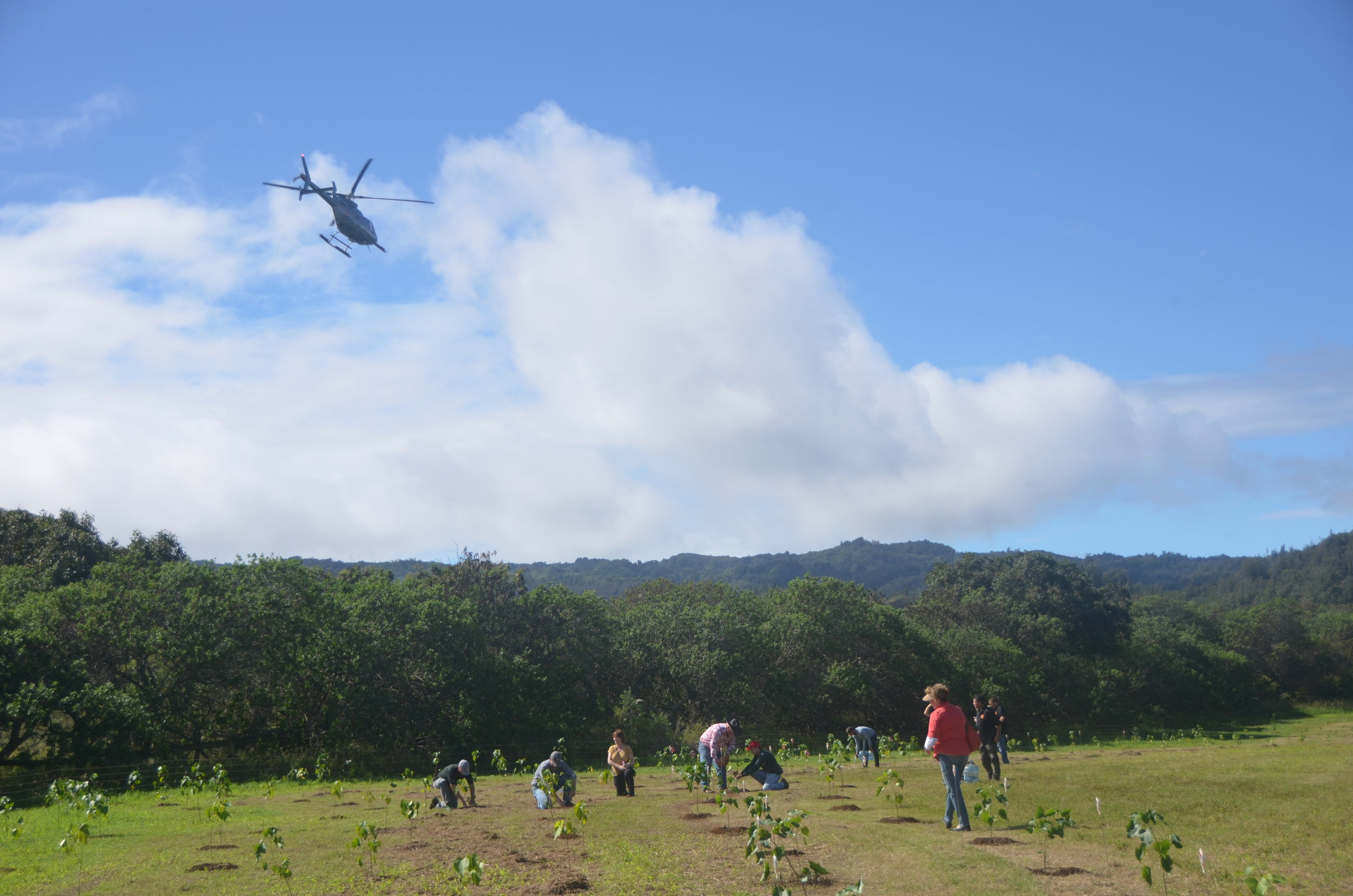The Importance of Planting a Tree
Building a forest from the grounD up..
We each have a reason to plant a tree. Some of us plant because we want to see the forest grow; some of us plant to remember those who pass; and some of us plant to commemorate new life we’ve brought into our Ohana. Whatever your reason is to plant, please let us know what we can do to support your positive intentions.
Sponsor Your Tree Today!
Give the gift of a living legacy by sponsoring an endemic Legacy Tree and a beautiful personalized certificate of planting. The remainder funds collecting seeds by hand, raising your seedling in our nurseries, planting your tree to create a forest, fencing out pests, clearing invasive species, and of course, the RFID tagging so you can track your tree via TimberTracker.
King Koa — $120
Planted on Hawaii Island
King Koa (Acacia koa) is a native Hawaiian tree of exceptional beauty. It has been all but eliminated from the lower elevations on all of the Hawaiian Islands. Koa is so variable in its appearance as to defy classification. It can be everything from red to brown to golden and even ivory. The grain can be straight, but the most valuable of koa exhibits a curly figure that creates the illusion that you are looking right through the surface. It finishes to a rich luster and depth that has made it a treasured resource for Hawaiian heirloom furniture. The Hawaiian Islands were once blanketed in koa forests with the largest trees being sought out for dugout canoes. The wood was so prized that it was used for virtually everything in contact with the Ali'i (Hawaiian royalty). The trees reach heights of 100 feet and diameters of 4 feet.
Royal Sandalwood
Planted on Hawaii Island
Discovery of the sweet smelling Royal Sandalwood "‘Iliahi" by the outside world in 1810 created frenzied trade which all but eliminated the tree from the Hawaiian Islands by 1830. This left a trail of death and destruction not only for the tree but for the Hawaiian people as well. Although these forests were ravaged, sandalwood trees still survive today, tucked away on less accessible mountain slopes. Through the efforts of the Hawaiian Legacy Reforestation Initiative and other caring individuals like you, these incredible sandalwood trees are making a comeback. These trees belong to all generations, and with your help we can save Hawai‘i’s forests...one tree at a time.
‘Ohi‘a Lehua — $120
Planted on Hawaii Island
WE ARE VERY SORRY BUT WE ARE CURRENTLY OUT OF THIS SPECIES. We understand the demand to plant Ohi‘a in sight of the recent Rapid Ohia Death advancements, and though we cannot provide this species, we hope it won’t stop you from planting a tree today.
WE WILL CONTINUE PROPAGATING AGAIN SOON. CHECK BACK AGAIN!
Monarch Milo — $120
Planted on Oahu
Milo is a beautiful and spiritually important tree used in and around temples throughout Polynesia. It continually produces showy bright yellow flowers with maroon centers. These blooms start out yellow in the morning then turn to a dark orange later in the day. The beautiful wood was prized by Hawaiians to make bowls, calabashes, carvings and musical instruments. Even the Waikīkī home of King Kamehameha I was known for being surrounded by Milo trees. It was revered in the Hawaiian community, considered a sacred tree and its use was once forbidden to commoners.
Lei Kou — $120
Planted on Oahu
A treasured tree in Hawaii, Kou is now categorized as indigenous to the Hawaiian Islands. Groves of kou were once planted near sacred places; today, very few kou trees remain.
Known for its cream-and-caramel-toned wood that swirls and pools, kou is both beautiful and useful when used for creating bowls and calabashes. Kou leaves provided dye for kapa cloth and fishing lines. The orange trumpet-shaped flowers were highly prized by young girls and lei-makers to create a favorite traditional lei.
In the Hawaii of yesterday, parents would plant kou when children were born. Plant a Lei Kou Legacy Tree and leave “Your Lei” for future generations.
Each Legacy Tree you plant comes with an Electronic Certificate of Sponsorship sent via email detailing the tree's ID number and GPS location. Embossed paper certificates are available for an additional $5.
Since the arrival of man in the Hawaiian Islands, over half of the native forests have been lost. Since its inception in 2014, The Hawaiian Legacy Reforestation Initiative (HLRI) has been working hard to reverse this trend and return these forests to the native landscape. Working together with community minded businesses, non-profits and individual Legacy Tree sponsors, more than 500,000 endemic trees now cover nearly 1200 acres in the state’s first Hawaiian Legacy Forest.
When you select to plant a Legacy Tree, your real contribution is that this simple act repeated by so many will create a forest. The world is losing forest cover at an alarming rate that shows no sign of letting up. Reversing this trend has proven a very difficult challenge.
A forest is much more than just an area filled with trees. It is a dynamic and living entity all its own. As a living entity, it grows and evolves over time. Like any society of individuals, its members grow and contribute and all will eventually die, making way for new members. This cycle of evolution molds the individual plantings into a forest.
Our commitment to the Legacy Tree sponsor is to monitor and nurture this development from a collection of individual trees into an endemic Hawaiian ecosystem supporting a diverse population of plant and animal life. You are providing the raw materials to make this possible.
Of the many trees planted to initiate this process, some will become the stars of the forest while others will be supporting actors. Some of the trees will die along the way and some will have to be removed for the overall health of the forest. Our TimberTracker system allows you to check on the trees you have sponsored through the years. If at any time you find that a tree you sponsored has died, let us know. We will check on your tree and if it has died we will plant a new one on your behalf at our cost. This will allow the forest to expand and evolve with you as an ongoing part of this evolution.
For at least the next 50 years of our lease, we will shepherd the Legacy Trees into a vibrant and evolving ecosystem. Thank you for being part of this adventure.
Affiliated with one of our partners?
[ HAMAKUA KOA CASE STUDY / COURTESY OF HLH,LLC ]


